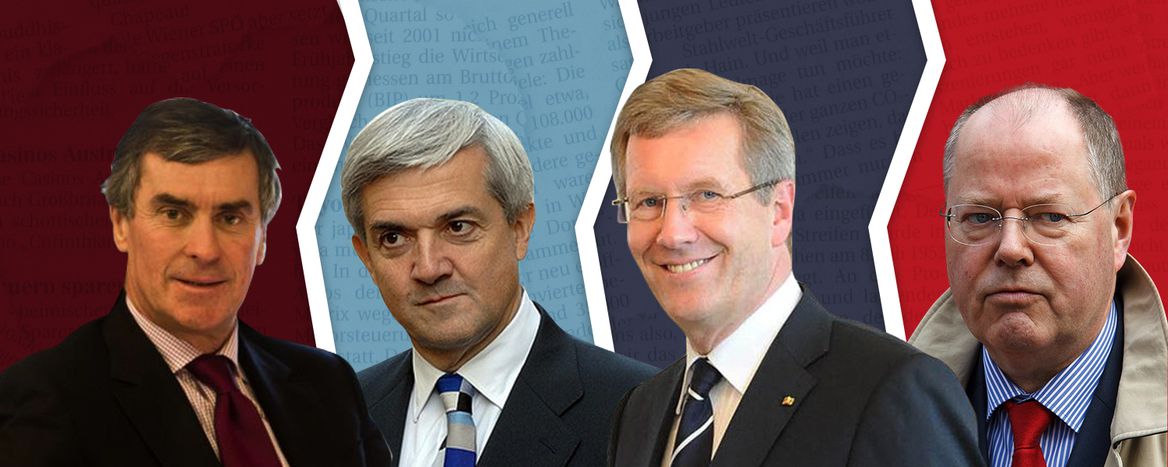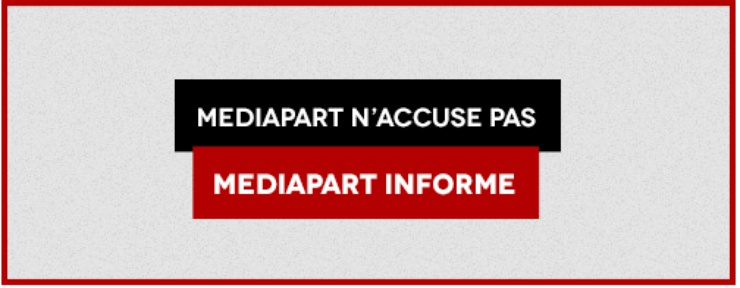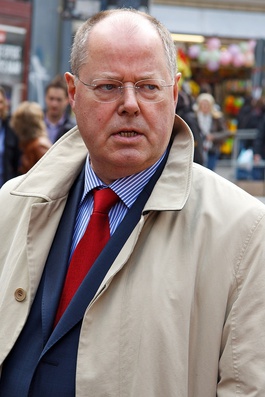
Cahuzac, Huhne, Drzewiecki: the most corrupt politician of EU's all
Published on
Translation by:
Daphne WoodFrance's tax-dodging budget minister resigned on 19 March as a result of inquiries led by the investigative news website Mediapart. This is virtually a first for France, the country considered as the fatherland of the rights of man. Elsewhere in Europe, many countries have a history of not dithering around when it comes to corruption
Crikey. Mediapart, the French investigative news website, has been around for five years. For the first time, it has served up a minister’s head on a plate. Jérôme Cahuzac stepped down as budget minister on 19 March largely as a result of the investigations carried out by the pay-for-content site into his alleged Swiss bank account. Cahuzac is reported to have referred to this account during a telephone conversation; it now constitutes the justification for another investigation, of a more judicial nature, conducted by the Paris public prosecutor’s office for money laundering through tax fraud.
Concern for proof
Few people in general - especially those in France - are bothered by the fact that Cahuzac was forced to resigne under government pressure. The debate is more about journalism, which finds itself much-praised after the decision. It is rare in France for a member of the government to succumb to headline pressure. Mediapart is perfectly aware of this; during the Liliane Bettencourt affair in 2010, Eric Woerth, the then-budget minister, had clung onto his post despite the humiliation and the incriminating details demonstrating his involvement in the conflicts of interest scandal. Unbudgeable, French ministers are denying the whole thing as a major act of bad faith and are demanding ‘proof’ from the journalists. Note that Cahuzac is still claiming he is innocent, is still demanding evidence of his guilt and, according to some people, is only resigning in the name of a certain duty of probity.

This concern for ‘proof’ has been highlighted by Frédéric Bonnaud, editor-in-chief of the French cultural magazine Inrockuptibles, and occasional contributor to Mediapart. ‘That will never suffice,’ he says. ‘In France, journalism is considered to not involve disclosing the criminal practices of those who are supposed to represent its citizens, and to act on their behalf. That is fine for American films.’
Germany: Wulff vs Steinbrück
 Frédéric Bonnaud could have added that it was equally fine for German TV series, English sitcoms or Polish soap operas.Whilst elsewhere in Europe politicians seem to have the same propensity as those in France when it comes to ‘criminal practices’, few have resisted, even if only a banner headline in the press.
Frédéric Bonnaud could have added that it was equally fine for German TV series, English sitcoms or Polish soap operas.Whilst elsewhere in Europe politicians seem to have the same propensity as those in France when it comes to ‘criminal practices’, few have resisted, even if only a banner headline in the press.
Remember the Christian Wulff affair in Germany? On 17 February 2012 the German president resigned after two months of accumulated pressure from separate affairs dating back to the time when he was prime minister of Lower Saxony. In fact, Wulff, who remains the youngest person to have been president of the German Republic, stepped down for having benefitted from a preferential interest rate loan on the purchase of his principal residence. It must be said he also tried to put pressure on the German tabloid newspaper Bild in order to hush up the affair. Can you imagine the shame?
It is not as bad as Peer Steinbrück, candidate for the post of German chancellor, who is recognised as chancellor Angela Merkel’s most serious adversary. He as accused of not being transparent enough over his previous posts in the private sector and above all of not having disclosed all of the funding required for the development of his campaign website. Steinbrück is considered by most German political pundits to be in bad shape when it comes to his run for the chancellery, to the point of even being politically dead.
Poland and UK: Drzewiecki and Huhne
The most despicable of scoundrels might well be found in Poland. Former sports and tourism minister Miroslaw Drzewiecki was accused of having exerted insider influence on the subject of a gambling bill, whilst the organisation of the euro 2012 football championships between Poland and Ukraine was under way. Put another way, Drzewiecki is said to have intended to amend the aforesaid bill to the advantage of casino owners. This is like a scene straight from a crime novel where the inevitable outcome can only be resignation and humiliation.
Until proven to the contrary, not one of the aforementioned people have so badly compromised or been sent to prison. This is precisely because these individuals are only ‘little yobbos’ compared with the godfather across the Channel: Chris Huhne. The liberal democrat politician, 58, is a former secretary of state for energy and climate change in David Cameron’s conservative-liberal democract coalition government. On 11 March he and his Greek-born former wife were sentenced to eight months in prison each for speeding. Well, not exactly. In 2003, Huhne had asked his economist ex-wife to take driver’s speeding penalty points in his place after risking losing his license. The pair had perverted the course of justice.
In France [such scandals] are not about shame
In each of these European ‘scandals’ it did not take long for the justice system to get involved or for the principal concerned parties to accept responsibility. The question is knowing what you risk in France when you are involved in conflicts of interest, kick-backs or misappropriation of public funds. In any case it is not about shame. Jérôme Cahuzac is well and truly done for, but he resigned ‘out of duty’. And everyone’s cheering him on.
Images: main © Adrien Le Coarer; in-text Mediapart © screenshot from official site, Steinbrück (cc) vorderstrasse/flickr
Translated from Jérôme Cahuzac, la vie des autres



